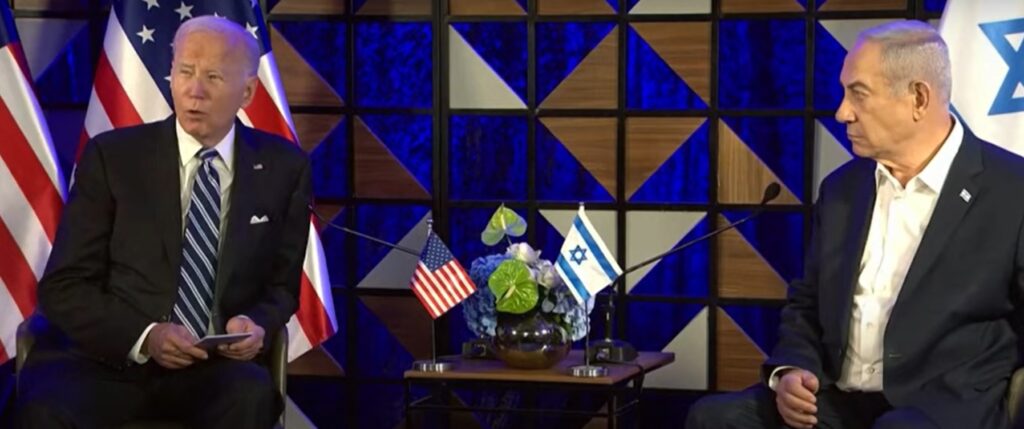Prime Minister Netanyahu is scheduled to meet with President Biden at the White House next Monday, followed by a significant speech to Congress two days later.
The speech will focus on the “Iron Swords” war, its consequences on multiple fronts, and the danger posed by Iran’s nuclear ambitions.
This will be Netanyahu’s first political visit to Washington since returning to office in December 2022.
As it stands, a hostage release deal with Hamas and a ceasefire in the Gaza Strip are unlikely to be reached before the Washington visit.
Concerns and anger are growing in Hamas, the Palestinian Authority (PA), and the Arab world, particularly in Egypt, the United Arab Emirates, and Jordan, regarding Netanyahu’s visit.
The prevailing belief in Hamas and the PA is that President Biden, due to his political situation during the election campaign, needs Netanyahu’s support.
Since Biden’s televised debate with former President Donald Trump, Washington has significantly reduced political pressure on Netanyahu.
Hamas fears that Netanyahu will receive substantial political and security support from both houses of Congress, as well as additional shipments of weapons from President Biden for the ongoing campaign.
The Lebanese newspaper “Al-Akhbar” reported serious concerns within the Egyptian leadership that Netanyahu does not intend to end the war soon, possibly extending it until November, after the U.S. elections.
They speculate that Netanyahu hopes for a Trump victory, which would ensure full support for Israel’s military operations.
Hamas worries that what Netanyahu has not achieved through war, he will seek to achieve through diplomacy.
Netanyahu is expected to ask President Trump for American political backing in international institutions to continue the war against Hamas with full force.
Israel has adhered to its commitments to the Biden administration regarding combat operations in the Rafah region, gradually evacuating over a million displaced persons to the north and carefully using American weapons to minimize civilian casualties.
This adherence bolsters Netanyahu’s position and ability to persuade the administration to supply additional weapons and ammunition necessary for the war’s continuation.
Senior political figures in Jerusalem believe Netanyahu will avoid openly confronting the Biden administration during his Congress speech to maintain good relations with President Biden until the presidential elections in November.
However, he will emphasize the need to return all Israeli hostages from Hamas captivity, address Israel’s essential security needs, destroy Hamas’s military and governmental capabilities in Gaza, push Hezbollah forces away from Israel’s border, and address the Iranian threat and the prevention of Iran obtaining nuclear weapons capabilities.
Netanyahu’s speech to Congress will reiterate Israel’s red lines in the negotiations for hostage releases and symbolize Israel’s appeal to the world amid the resistance axis’s attempts, led by Iran, to destroy it.
He will emphasize Israel’s determination to win the battle and eradicate its enemies.
Hamas and Iran assess that Netanyahu’s visit aims to secure a green light for continued campaigns against Hamas in Gaza and Hezbollah on the Lebanese border.
The PA is concerned that President Biden’s political difficulties have led to a noticeable decline in the American administration’s demand for Israel to recognize a Palestinian state, a trend likely to persist until the presidential elections in November.
Despite the strained relations between President Biden and Prime Minister Netanyahu and their significant disagreements since the war’s outbreak, political interests seem to prevail.
The show continues despite Palestinian anger, as Israel remains the most important U.S. ally in the Middle East, ensuring continued American support in all areas.
As the late Prime Minister Menachem Begin said, “Whoever doesn’t like it can turn up their nose.”




